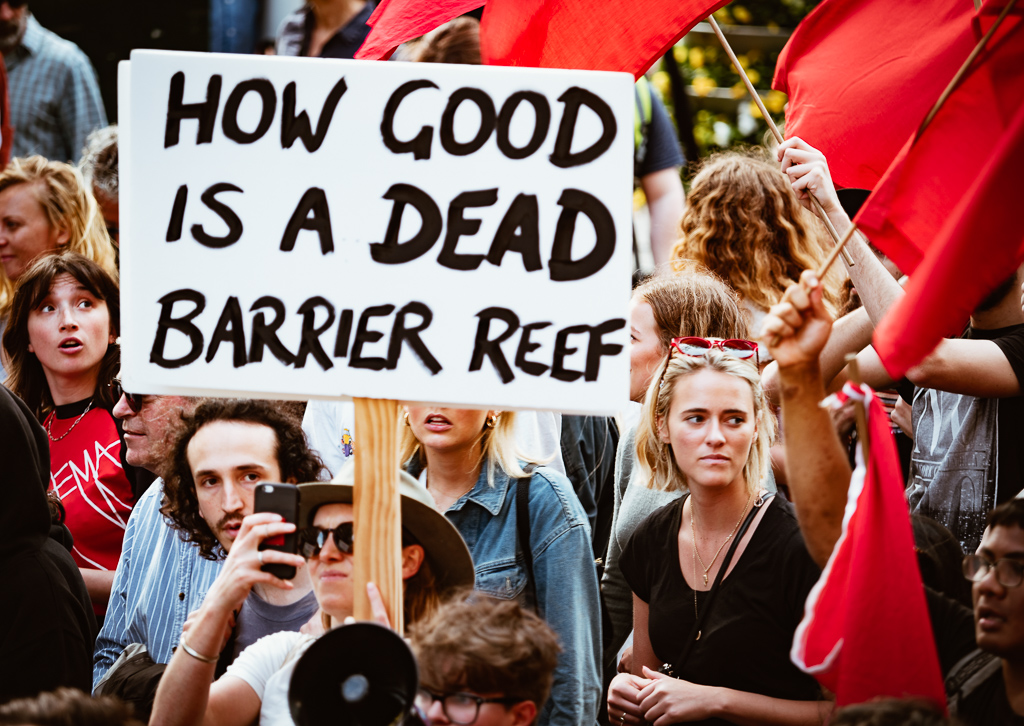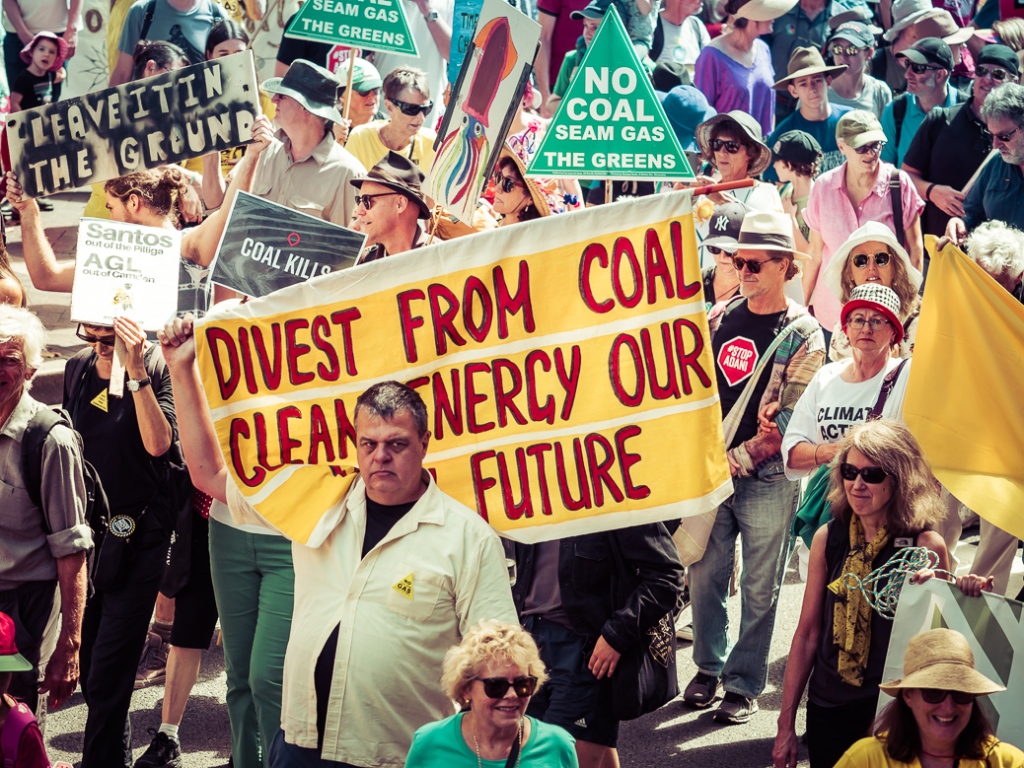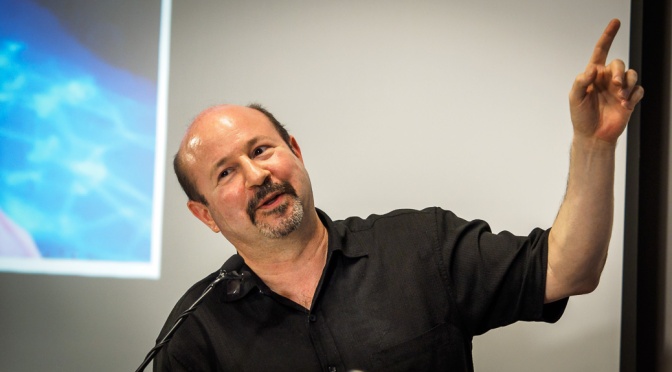Recently, Daniel Nyberg and I were invited to contribute a short essay to the Journal of Management Inquiry as part of a themed discussion on ‘Climate Action Research: What’s Holding Us Back?’. Our contribution is reproduced below and argues that business and management scholarship has been particularly slow in focusing on the issue of anthropogenic climate disruption. In the essay we outline why this is and the need for management scholars to broaden their perspective on the relationship between corporate capitalism and the existential threats that humanity now faces in the climate era.
Confronting the Big Picture: Climate Change, Capitalism, and Management Scholarship
Christopher Wright and Daniel Nyberg
The neglect of climate change in business and management research has been a long-term trend (Goodall, 2008; Nyberg & Wright, 2022a). Yet, in the last few years it seems management scholars have finally recognized climate change as an issue of concern. Climate change now features in the pantheon of “grand challenges” that management scholars increasingly profess to address (George et al., 2016), and most business schools now routinely genuflect toward the discourse of “sustainability” and the colorful iconography of the UN SDGs (Miotto et al., 2020).
The irony of this is somewhat stark given how late in the day it really is. After all, the science of the greenhouse effect and anthropogenic climate disruption is centuries old (Weart, 2011), American presidents were being warned of the existential implications of global warming from the mid-1960s (Nuccitelli, 2015), and oil companies’ own internal research had established the link between their products and global warming during the 1970s (Supran & Oreskes, 2017). From the late 1980s, climate change became institutionalized within annual international climate negotiations, yet as the scientific data increased on the dire threat facing humanity, greenhouse gas emissions and atmospheric concentrations of carbon dioxide and methane continued to grow (Heede, 2014). As the world heats to unprecedented levels and the tipping points of Greenland, the Amazon and the west Antarctic ice sheets become reality, it now seems management scholarship has finally woken up! But to what, one might ask?
Despite the growing attention to the climate crisis in management research, there is a notable failure to come to grips with the phenomenon itself. Much management writing on climate change defaults to the more nebulous concerns of “sustainability,” “business greening,” and the discursive fashion of “net-zero.” But missing from most of these accounts is any understanding of the fundamental nature of the problem the developed world has created. The exploitation of fossil energy in the form of coal, oil, and gas, during the nineteenth and twentieth centuries facilitated the dramatic expansion of industrial activity and the “Great Acceleration” of globalized corporate capitalism (Steffen et al., 2015; Wright & Nyberg, 2015). Fossil energy enabled the fantasy that the human species was now free from the constraints of the natural world and could exist somehow independent from its physical limits (Malm, 2016). Humans could, it seems, conquer nature, extracting from it endless productive inputs, while also using it as a sink for capitalism’s ceaseless waste (of which greenhouse gases are perhaps its most profound legacy). A small proportion of the human species could now live as gods, free from the hardships of food and energy scarcity and consume at a scale beyond the imagination of their forebears. However, it was always a mirage, a form of magical thinking, and now in this age of consequences we are finally becoming aware of the huge cost of such hubris.
Yet it is our embedded relationship to the natural world and the web of life; the endless complexity of interrelated species and elements that we call “nature,” that is largely absent from management scholarship. Perhaps shaped by the underlying influence of neoclassical economics, management researchers and business schools view the natural environment as something of a distraction from the process of economic value creation. From our earliest days in undergraduate lectures, it was drummed into us that the economy was where the action was, and nature was defined out of the equation, an “externality” that we need not concern ourselves with. As Rae André points out in this current exchange, this myopia has been compounded for management and business scholars through the obsession with the micro functioning of the business organization (in terms of the strategy and structure of the firm and its functional specializations). If climate change is to be acknowledged, it must be incorporated within the logic of the firm; a “business case” of risk and opportunity (Lash & Wellington, 2007). Unsurprisingly, when climate change is considered, the discussion moves toward the reduction of these business risks resulting from climate disruption and the capture of monetary opportunities (new products and markets) in a changing physical world (Nyberg et al., 2022). This focus on “risk,” of which this curated discussion is themed, is itself problematic: risk for whom and what? Clearly not all of humanity have equally contributed to the current climate crisis, nor are its impacts equally shared (evident in the huge climate inequalities facing the Global South and future generations!). Invariably, the “solutions” that corporations and their advisers promote emphasize corporate innovation, new technologies and market mechanisms as the focus of climate response, ignoring the fact that it is these very activities that have generated the current crisis. Given then that climate change now threatens not only the near future of organized human civilization, but also much of life on the planet, what should management scholars do?
First, there is a need for us as management scholars to recognize and better communicate the true nature of the problem in our research and teaching. Human-induced disruption of the climate is a direct result of a global capitalist economic system reliant on compound growth ad infinitum and dependent upon the continued extraction and combustion of fossil energy. Indeed, coal, oil, and gas still provide more than 80% of total global energy consumption, a figure only marginally less than was the case 50 years ago (IEA, 2021). This extends across the production of energy, into manufacturing, transport, food, and agriculture (IPCC, 2023). Thus, calls for “greening” business, greater eco-efficiency, and managing risk miss this basic truth, implying that it is sufficient to simply tweak a global economic system which is destroying the very life-support systems of the planet. Here, we would take issue with Gioia’s (2024) argument, noted in the introduction to this exchange, that climate change is an expression of “collective stupidity” and that business will lead in responding to it. The climate crisis is, we would argue, not an expression of stupidity, but rather the result of conscious planning by corporate and political leaders who view this as the desired reality; what Fisher (2009) has termed “capitalist realism.” Moreover, the current political responses to the climate crisis reveal that business is “leading,” however it is doing so in ways that lock in the continuation of business as usual and obfuscate the need for a far more radical alternative imaginary (Nyberg et al., 2022; Wright & Nyberg, 2017).
Second, having recognized the fundamental nature of the climate crisis, as management scholars we need to start having honest conversations about alternatives to our current economic and political system; a fundamental rethink of how our societies could be organized differently. As André and Hoffman and Jennings argue in their essays, this means going beyond the narrow theories of business studies and engaging with a truly multidisciplinary perspective, drawing on insights from political economy, geography, climate science, and the broader humanities. We need to expand our intellectual horizon beyond just stakeholder theories of existing business models to a more fundamental recognition of the planetary boundaries humanity must work within and the complex political processes implicit in a more equitable sharing of the basic needs of human and non-human well-being (Raworth, 2017). It means challenging the assumptions of economic growth and seriously considering how issues of “degrowth” and “sufficiency” can inform social organization (Hickel, 2020). It involves taking seriously calls for greater deliberative democracy that extends beyond the façade of political representation and involve communities in making decisions about their lives and futures free from the malign influence of oligarchic power (Willis et al., 2022). As the other contributors have noted, there are institutional reasons why this is difficult in our universities given the siloed nature of expertise and how this is rewarded and incentivized. University collaborations across disciplines are further hampered by the influence of the fossil-fuel industry in higher education (Lachapelle et al., 2024). So, while climate change provides a viable setting for challenging these disciplinary boundaries as well as an opportunity for new insights and learning for ourselves and our students, it also requires challenging the financialization of universities and their dependence on special interests.
Of course, these are huge, consequential social agendas, but they are also the issues that now matter the most if humanity is to have a future. Moreover, these are the concerns that management and organizational scholars should be addressing if they are to have any relevance in a world in freefall. Continuing to address the intricacies of corporate activities and shareholder value maximization is a comforting illusion, however maintaining business scholarship as usual simply perpetuates an economic and political system that is locking in our creative self-destruction, as scholars, as societies, and as a species (Wright & Nyberg, 2015). We need to dream bigger!


















